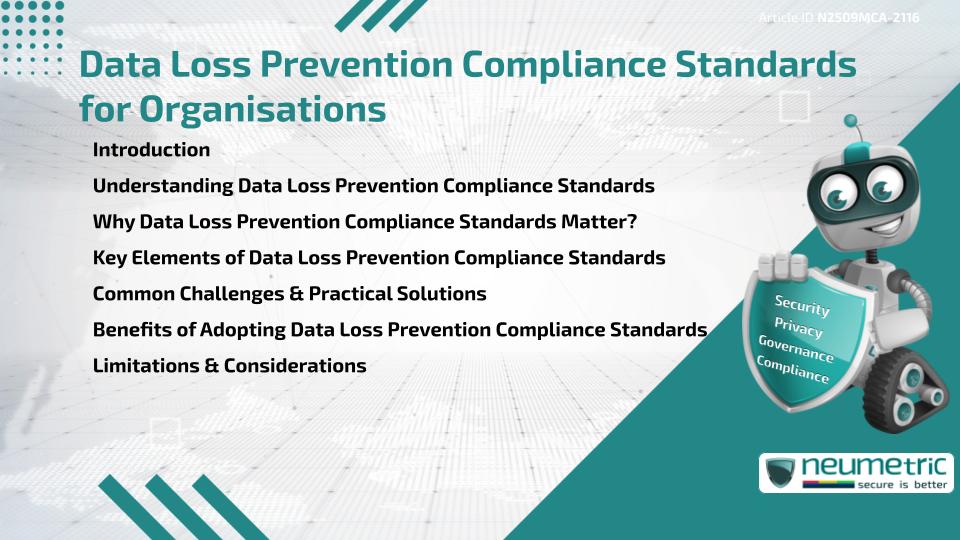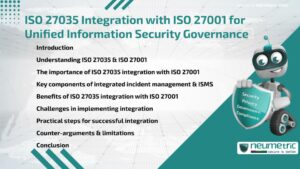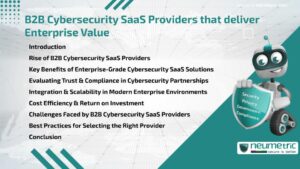Table of Contents
ToggleIntroduction
The Data Loss Prevention Compliance Standards provide Organisations with Structured Practices to Safeguard Sensitive Information & Meet Regulatory requirements. By preventing Unauthorised Access, Transfer or Misuse of Data, these Standards help reduce Security Risks while ensuring Compliance with Frameworks such as GDPR, HIPAA & ISO 27001. This Article explores their importance, elements, challenges & benefits for Organisations of all sizes.
Understanding Data Loss Prevention Compliance Standards
Data Loss Prevention [DLP] refers to Strategies & Technologies designed to prevent Sensitive Data from being Leaked or Mishandled. The Data Loss Prevention Compliance Standards align these Strategies with Legal, Regulatory & Contractual obligations.
They typically cover Technical Safeguards, Governance Processes & Employee Awareness. For background, see NIST Data Protection guidance.
Why Data Loss Prevention Compliance Standards Matter?
Organisations today handle large Volumes of Personal, Financial & Proprietary Data. A single Data Breach can cause Legal consequences, Financial Loss & Reputational Damage. The Data Loss Prevention Compliance Standards matter because they:
- Ensure alignment with Industry Regulations.
- Protect Sensitive Personal & Corporate Information.
- Reduce the Likelihood of Breaches & Insider Threats.
- Build trust with Regulators, Clients & Business Partners.
The ISO.org Standards provide globally recognised Compliance Frameworks.
Key Elements of Data Loss Prevention Compliance Standards
- Data Classification – Identify & Label Sensitive Information.
- Access Control – Limit access based on Roles & Responsibilities.
- Encryption – Secure Data at Rest & In Transit with strong Encryption methods.
- Monitoring & Detection – Track Data movement across Networks, Endpoints & Cloud Environments.
- Incident Response – Establish Protocols for responding to potential Data Loss events.
- Employee Training – Educate staff on handling Sensitive Information responsibly.
- Regulatory Alignment – Map DLP practices to GDPR, HIPAA or PCI DSS requirements.
For Practical Application, see ISACA Security resources.
Common Challenges & Practical Solutions
- Complex Data Flows – Use Automated Tools to Map & Monitor Sensitive Data.
- Insider Risks – Strengthen monitoring & enforce Least-privilege access.
- Regulatory Overlaps – Implement unified Compliance Frameworks to address multiple Standards.
- Resource Constraints – Leverage clouC-based DLP solutions for cost efficiency.
The NCSC UK Data Protection collection offers guidance on overcoming these challenges.
Benefits of Adopting Data Loss Prevention Compliance Standards
- Regulatory Compliance – Reduces Legal Exposure & Penalties.
- Stronger Security Posture – Minimises Data Breaches & Leaks.
- Operational Efficiency – Streamlines Governance & Monitoring.
- Trust & Reputation – Enhances Credibility with Clients & Stakeholders.
Limitations & Considerations
While the Data Loss Prevention Compliance Standards provide a strong foundation, they cannot eliminate all Risks. Organisations must adapt them to evolving Threats, integrate them with broader Security programs & update them regularly to remain effective.
Takeaways
- The Data Loss Prevention Compliance Standards align Organisational practices with Security & Legal requirements.
- They cover Data Classification, Access Controls, Monitoring & Training.
- Adoption reduces Risks, ensures Compliance & builds Stakeholder trust.
FAQ
What are Data Loss Prevention Compliance Standards?
They are structured requirements to prevent Unauthorised Access, Transfer or Misuse of Sensitive Data.
Why are they important for Organisations?
They reduce Breach Risks, ensure Compliance & Protect Customer Trust.
Which regulations require DLP Practices?
Frameworks like GDPR, HIPAA, PCI DSS & ISO 27001 include DLP requirements.
Do these Standards apply to Small Businesses?
Yes, all Organisations handling Sensitive Information benefit from Compliance.
Can Technology alone ensure Compliance?
No, it must be supported by Governance, Processes & Employee Training.
References
- NIST – Data Protection Guidance
- ISO.org – International Standards
- ISACA – Security Resources
- NCSC UK – Data Protection Collection
- IT Governance – Data Protection Resources
Need help for Security, Privacy, Governance & VAPT?
Neumetric provides Organisations the necessary help to achieve their CyberSecurity, Compliance, Governance, Privacy, Certifications & Pentesting needs.
Organisations & Businesses, specifically those which provide SaaS & AI Solutions in the Fintech, BFSI & other regulated sectors, usually need a CyberSecurity Partner for meeting & maintaining the ongoing Security & Privacy needs & requirements of their Enterprise Clients & Privacy conscious Customers.
SOC 2, ISO 27001, ISO 42001, NIST, HIPAA, HECVAT, EU GDPR are some of the Frameworks that are served by Fusion – a SaaS, multimodular, multitenant, centralised, automated, CyberSecurity & Compliance Management system.
Neumetric also provides Expert Services for technical Security which covers VAPT for Web Applications, APIs, iOS & Android Mobile Apps, Security Testing for AWS & other Cloud Environments & Cloud Infrastructure & other similar scopes.
Reach out to us by Email or filling out the Contact Form…





